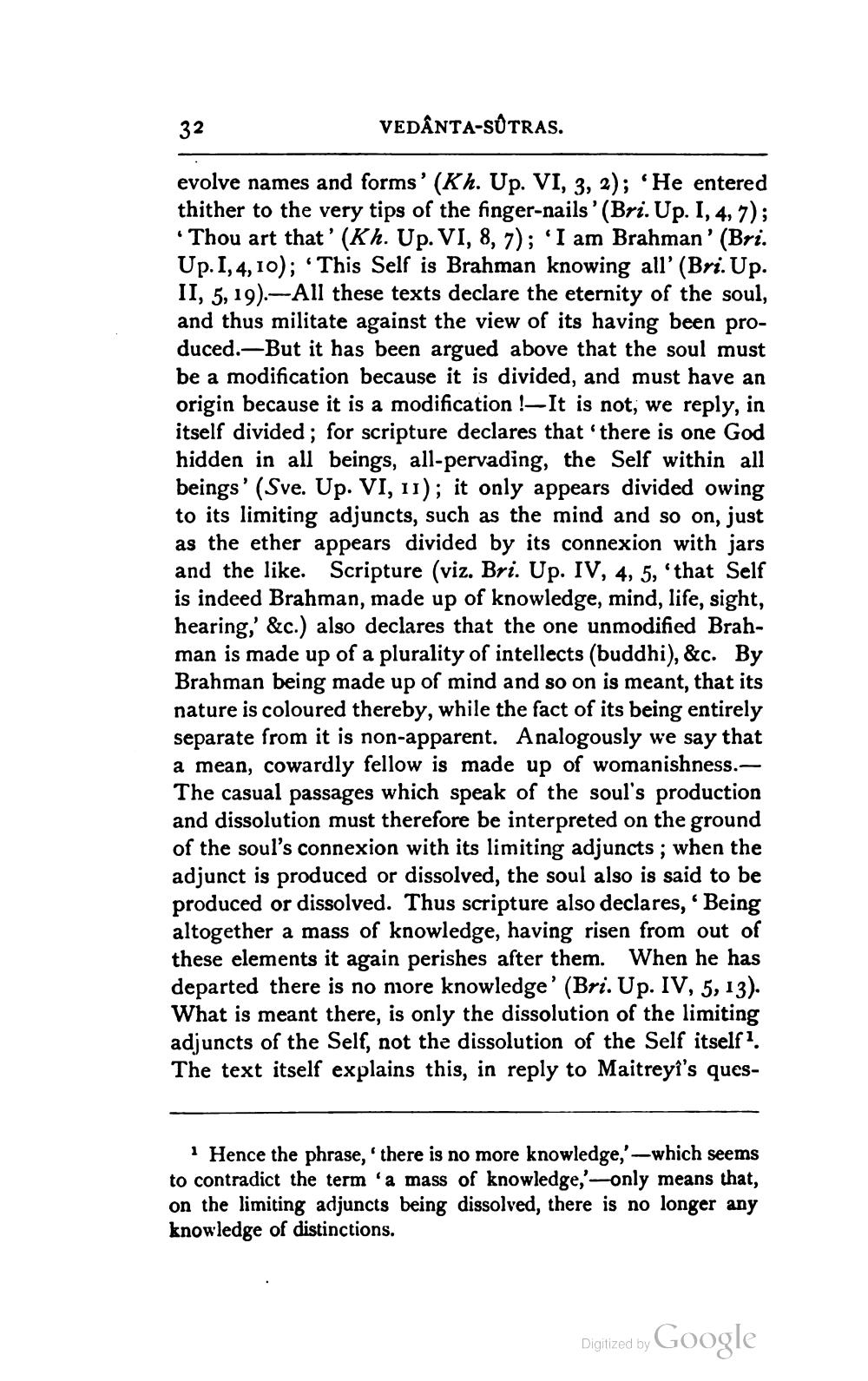________________
32
VEDÂNTA-SÛTRAS.
evolve names and forms' (Kh. Up. VI, 3, 2); "He entered thither to the very tips of the finger-nails '(Bri. Up. I, 4, 7); • Thou art that'(Kh. Up. VI, 8, 7); 'I am Brahman' (Bri. Up. I, 4, 10); 'This Self is Brahman knowing all' (Bri. Up. II, 5, 19).-All these texts declare the eternity of the soul, and thus militate against the view of its having been produced.—But it has been argued above that the soul must be a modification because it is divided, and must have an origin because it is a modification !- It is not, we reply, in itself divided; for scripture declares that there is one God hidden in all beings, all-pervading, the Self within all beings' (Sve. Up. VI, 11); it only appears divided owing to its limiting adjuncts, such as the mind and so on, just as the ether appears divided by its connexion with jars and the like. Scripture (viz. Bri. Up. IV, 4, 5, 'that Self is indeed Brahman, made up of knowledge, mind, life, sight, hearing,' &c.) also declares that the one unmodified Brahman is made up of a plurality of intellects (buddhi), &c. By Brahman being made up of mind and so on is meant that its nature is coloured thereby, while the fact of its being entirely separate from it is non-apparent. Analogously we say that a mean, cowardly fellow is made up of womanishness.The casual passages which speak of the soul's production and dissolution must therefore be interpreted on the ground of the soul's connexion with its limiting adjuncts; when the adjunct is produced or dissolved, the soul also is said to be produced or dissolved. Thus scripture also declares, ‘Being altogether a mass of knowledge, having risen from out of these elements it again perishes after them. When he has departed there is no more knowledge' (Bri. Up. IV, 5, 13). What is meant there, is only the dissolution of the limiting adjuncts of the Self, not the dissolution of the Self itself 1. The text itself explains this, in reply to Maitreyi's ques
· Hence the phrase,' there is no more knowledge,' — which seems to contradict the term 'a mass of knowledge,'-only means that, on the limiting adjuncts being dissolved, there is no longer any knowledge of distinctions.
Digitized by
Digilzed by Google




